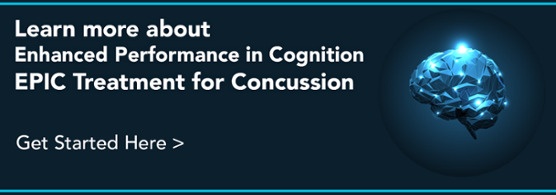I meet with patients every single day who have been dealing with concussion symptoms. Sometimes they have been experiencing them for a short amount of time, and others have been dealing with them for months and even years.
When I meet with those that have dealt with symptoms longer, many times I hear things like “I am a different person," or “Life is different” or “I used to be different…”
After a concussion, there are so many changes that can occur in almost every area of your world. For many people after a head injury or concussion, quality of life goes down, but I want you to know there is hope, and you are not alone in your experience.
Many times, patients mention feelings about their life like:
- “I don’t feel like being social or hanging out with friends because I can’t follow a conversation like I used too”
- Maybe you feel like you can’t find the right words and that makes you feel “stupid.”
- “I dropped out of high school/college/my job because I can’t focus or concentrate like I used to.”
- “It takes me five times more work and energy to study for a test/do this task, and I still have a hard time remembering things.”
- “My relationships with others (spouse, friends, children, family) are not like they used to be.”
- “I have seen multiple doctors, and I am not finding any answers, I am starting to feel hopeless.”
- “I am tired of chronic pain, constant headaches, and I feel like giving up.”
- “I feel hopeless because I have had doctors tell me that I can’t get better and I need to get used to who I am now.”
There is Still Hope for You
One of the most important things I try to emphasize for my patients when they first meet with me is: Your Experience is Normal.
These feelings and symptoms are all a part of this injury. These feelings and symptoms they are not your fault, and no one is to blame. The injury and the fact that your brain is injured that is what is truly to blame. This is why treating concussions aren't as easy as fixing a broken ankle.
A concussion is an entirely different kind of injury, and not just anyone can treat it correctly. But, this injury does not have to define you. It is not something that has to label you.
I want to share loud and clear that a concussion is treatable, and in many cases, symptoms of Post-Concussion Syndrome can go away almost entirely.
There is hope, and you can take your life back! I think that sometimes patients who have lost hope for a long time have a hard time believing that someone understands what they are going through. But I want you to know that as a Neuropsychologist, I know there are things you can do to feel better and have a better quality of life even after a concussion. You can have a better life, and we are here to help you get that back.








